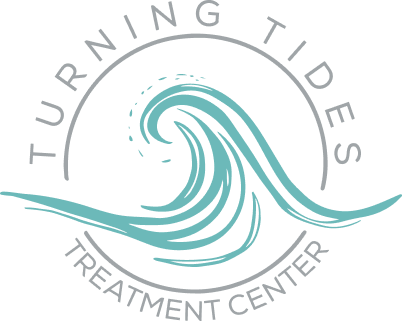Co-Occurring Disorders
Millions of individuals in the U.S. (52.9 million in 2020) struggle with mental health conditions. Sadly, mental illnesses also put individuals at higher risk of developing a substance use disorder.
Approximately 9.5 million adults in the U.S. struggle with addiction and a co-occurring disorder, according to the Substance Abuse and Mental Health Services Administration’s latest report.
What are Co-Occurring Disorders?
Individuals who struggle with mental health and substance use disorders are said to have co-occurring disorders. Another name for this is dual diagnosis.
Substance use disorders (SUDs) are mental disorders that impact an individual’s behavior and brain function. The effects of these disorders lead to their inability to control their use of substances like alcohol, illegal or legal drugs, or medication. They can experience symptoms ranging from moderate to severe. However, when it comes to addiction, typically, they struggle with severe forms of SUDs.
While mental health conditions and SUDS commonly co-occur, that doesn’t mean one led to the other. According to some research, several possibilities may explain why mental illness and SUDs co-occur.
Some of the reasons why mental health disorders and SUDs co-occur include:
Signs of Co-Occurring Disorders
There are various combinations of co-occurring conditions, and each may show different symptoms and signs. They’ll also require different treatment methods. Fortunately, there are drug and alcohol screening tools to identify individuals with co-occurring disorders.
Some of the various symptoms of a co-occurring disorder include:
- Social isolation
- Sudden behavior changes
- Risky behavior
- Using substances under hazardous conditions
- Requiring more and more of a substance to feel the same effect (tolerance)
- Loss of control over how much alcohol or substances are used
- Cravings for a substance and believing the substance is required to function
- Showing intense, painful symptoms of withdrawal
Symptoms of a co-occurring disorder will vary from one individual to the next. But a few warning signs, like problems with concentration, confused thinking, and suicidal ideation, are the most severe. If an individual displays these symptoms, they should seek medical attention immediately. It is essential to seek medical advice from a qualified and experienced mental health and drug abuse professional.

Common Co-Occurring Disorders
Several emotional problems can strongly affect an individual’s addiction problems. Including guilt, self-esteem, anger management, and grief problems, these problems are typically considered symptoms and not disorders themselves.
Some co-occurring disorders include:
- Depression
- Anxiety disorders
- Bipolar disorder
- ADHD
- Schizophrenia
- Personality disorders
- Others
People who struggle with a substance use disorder can also struggle with a co-occurring mental illness and vice versa.
How to Treat Co-Occurring Disorders
Many individuals struggle with SUDs and mental health conditions. Integrated care is recommended. When there is the presence of two or more co-occurring disorders, it complicates diagnosis and treatment. Integrated care is essential in these cases.
When healthcare professionals integrate screening and treatment for SUDs and mental disorders, it results in better care. Patients may have more positive health outcomes when treating the whole person.
Integrative therapy (i.e., medication-assisted treatment, behavioral therapies, aftercare, etc.) following a dual diagnosis means the healthcare professional is addressing mental health during and after treatments for SUDs. Detoxification is an excellent example of this.
Even when a person’s body is rid of the addictive substance or drug, the underlying reason for the addiction remains. If this underlying reason is an undiagnosed mental health condition, then mental health treatment is the next step.
Individuals sometimes become addicted to alcohol or drugs without a prior mental disorder. However, they may still require therapy to address the stress or trauma that caused them to abuse substances.

Benefits of Dual Diagnosis Treatment
If a person is suffering from a dual diagnosis (or they have a loved one who is), they should seek treatment. Addiction is a progressive condition that worsens over time and can even be fatal if left untreated.
There are numerous benefits of treatment for co-occurring disorders or dual diagnosis treatment, including:
While others may not notice their loved one's mental health, their struggle with dual diagnosis is still very real. Obtaining treatment for co-occurring disorders will enable the individual to break through negative patterns. While also learning new positive coping skills during therapy to help improve their mental health.
When both the mental health disorder and the addiction are treated, there's a higher likelihood of success in recovery. The symptoms of the mental health condition and the root cause of the addiction are being addressed.
Almost everyone knows that SUD can harm a person's physical health. But, psychiatric disorders may also impact a person's physical health just as much as SUDs can. Mood disorders and anxiety can leave the afflicted individual lost, tired, and unable to focus on improving their physical health.
Dual diagnosis treatment aims to focus on mental and physical needs. While also ensuring the person gets the rest, nutrition, and exercise they require to experience a successful recovery.
A patient's quality of life when receiving dual diagnosis treatment is often enhanced by knowing more about their disorder. When they understand more about their mind and body, and how psychiatric disorders and SUDs interact, individuals often feel like they have more control of their lives and can take on upcoming challenges.
When a person becomes motivated to recover from co-occurring disorders, they have a greater chance of successful recovery. They're more likely to stay compliant with integrated treatment and make the required changes to recover.
SUDs require professional medical treatment whether they co-occur with a mental disorder. But, for certain individuals, outpatient addiction treatment may not be enough. Therefore, speaking with a mental health and drug abuse professional is essential if you or a loved one requires dual diagnosis treatment. They can provide information on all available treatment options, including in-patient treatment centers.
We Can Help
Turning Tides Treatment Center treats mental health conditions along with substance use disorder. It is essential to treat co-occurring disorders at the same time. We develop comprehensive treatment plans for our patients to address their concerns effectively. The team of mental health professionals at Turning Tides has a proven history of treating people with a dual diagnosis.
We understand that seeking mental and behavioral health treatment can be difficult for some people. Our program is designed to help patients achieve long-term recovery from their mental health conditions and addiction. Turing Tides Recovery aims to support patients throughout their recovery journey – reaching out for help is the first step.
Contact us today to learn more about our treatment program and how we can help.
